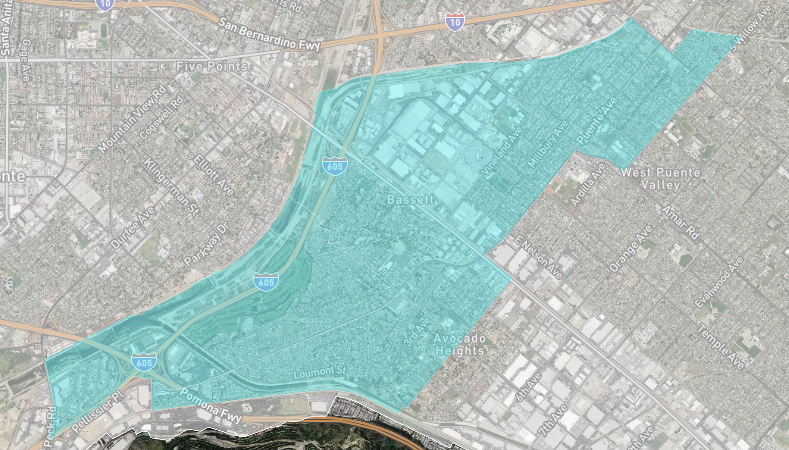
cities & towns, energy & technology
CCSC Part of the Team Awarded $9M Grant for Blockchain-based Renewables Project
Project will provide local renewable energy to community in San Gabriel Valley
The California Energy Commission (CEC) recently awarded a $9 million grant for Phase II of an innovative renewable energy access project in eastern Los Angeles County. The Bassett-Avocado Advanced Energy Community (BAAEC) Project, will provide locally produced renewable energy at-scale to disadvantaged communities in Bassett and Avocado Heights in the San Gabriel Valley. This community will serve as the “site host” of the advanced energy community-scale prototype, which will distribute energy services on a “blockchain backbone.”
The California Center for Sustainable Communities (CCSC) at UCLA is one of the partners on this innovative project that will provide local renewable energy to residents within disadvantaged communities (DACs) while offering shared economic benefits, such as substantial energy cost savings, lower electricity rates and energy efficiency retrofits of participating homes. The project also aims to break down the barriers and the complexity of planning and permitting community-scale energy projects in order to standardize the process.
“When we initiated the proposal process for the Phase I planning grant in 2015, our goal was to bring new thinking and new approaches to the energy transition, while at the same time ensuring benefits to communities which have been most impacted from fossil fuel use,” said Felicia Federico, executive director of CCSC. “We are delighted to be working with The Energy Coalition (TEC) as they lead the implementation phase of this work.”
This phase of the Advanced Energy Community project will include creating a resiliency microgrid that offers safety in times of prolonged power outages, installing EV charging infrastructure, developing community solar for clean and discounted electricity, and giving residents access and control via a mobile application for monitoring and managing energy use.
“We believe in a California energy future in which communities are energy-producing networks and clean energy is affordable and accessible for everyone,” says Craig Perkins, president and executive director at TEC. “This project is an exciting step towards that vision.”
In addition to CCSC, TEC’s other partners on the project include the County of Los Angeles, Clean Power Alliance, Day One, ActiveSGV, SensorComm Technologies, Aclima, enel x, greenlots, greencommuter, Grid Alternatives, Green Convergence, Sonnen, Community Electricity, and Space AI.
“This project has the potential to show how under served communities, including renters, can participate in the energy transition toward renewable electricity,” said Stephanie Pincetl, director of CCSC at the Institute of the Environment and Sustainability. “Until now, participation has been largely based upon income. Building this advanced energy community in eastern Los Angeles County will provide a model for the region and the state for how to achieve a just energy transition.”
The project is expected to reduce greenhouse gas emissions by 64% and net grid electricity consumption by 96% for all project participants over a 25 year period and will help with the decarbonization of other communities across the state as it offers a model for producing local energy while ensuring that DACs are not left behind in the transformation of our energy future.
